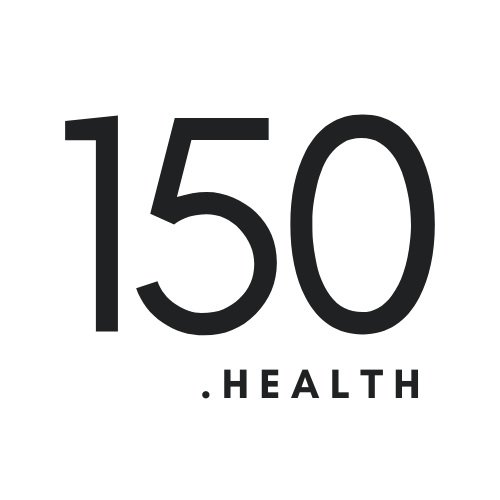‘In Case of Emergency’ - Doctors’ Note, Episode 9
Stimulating, shocking, sobering. That sums up the last two very memorable weeks in the worlds of medicine and health technology. We co-hosted the Healthtech Summit at London TechWeek, a key opinion-leaders meeting on breakthroughs in accelerating clinical trials. We also chaired an interview with the founder of Medable, and a longevity centered lunch at Founders Forum flagship event in Oxfordshire, sharing time with and learning from hundreds of the boldest innovators alive today. Outside of medicine, the famous Glastonbury music festival was back with a vengeance. With an 80 year old Sir Paul McCartney performing like someone half his age - it was quite the goal to aspire to. Should we be prescribing singing to patients in future?
For every action there’s an equal and opposite…
Keeping Isaac Newton and his 3rd law happy, in reaction to the wonderful optimism of tech week was the stark reality for three loved ones of patients of ours being diagnosed with very difficult cancers. Getting appointments with the very best experts internationally in a matter of hours makes a big difference to how patients and their families feel - increasing options, alleviating helplessness. But sometimes hours are too long in emergencies!
We had a cardiac arrest happen to a friend of ours visiting our London admin office. They lived to tell the tale, thanks to one of our physicians doing CPR for 30 mins and a huge amount of help from our staff keeping cool and calling all the right people. Getting to the right opinion and care quickly is utterly essential. Equally critical is having lots of capable and caring hands around when you need them.
What would you do if someone stops breathing?
Call 111 or 911 or your local emergency service of course. Simple, no? Just call and a life-saving paramedic team will instantly appear? Unfortunately, ambulance capacity is critically overstretched in every city we have patients in - across the US, U.K. and Europe. “911’s a joke in yo’ town”: these are lyrics from the early era of rap voicing the scarcity of emergency services, that resonate now more than ever. And while before there was gross inequality as to who saw the lifesaving blue lights approach due to the ‘color’ of a neighborhood today even the most privileged enclaves of London and New York are facing double the normal wait times. It should take 18 minutes for an ambulance to arrive in the event of category 1 emergency. This is now 40 mins.
Where’s your local emergency room? Should you have an oxygen concentrator at home? Should you learn basic life support? Do you have a defibrillator nearby? What do you do if an ambulance doesn’t arrive? We believe this is 101 knowledge for everyone even if you rarely need to use it.
Aborting human rights.
It came as a great shock to us that a fundamental human right of bodily autonomy could be taken away by a court after decades of sound ethical debate. 6 weeks is a minuscule period of time to know if you’re pregnant. And it is not until 24 weeks that a human fetus can possibly survive outside the womb, and not without the very limits of modern science and medicine. 12 weeks would seem a reasonable compromise if you totally ignore a woman’s right to decide if they wish to bring a new life into the world. The right of the child cannot be ignored but this is a massive backward step for women’s and human rights in a modern society.
COVID cautions
The latest Omicrons are on the rise and causing more hospitalizations proportionate to cases than we’d like to see. Numbers in ICU are rising too, in a way we need to watch. Very low numbers still but we should never ignore exponential growth rates. We’re recommending everyone wears masks in crowded places and public transport when socializing is not the objective. Why? The new variants seem to cause mild but bed-bounding illness repeatedly despite recent exposure to other variants. This fall will likely be interesting times.
We still remain happy that continuous manageable exposures and pre-existing immunity from the illness and vaccines is keeping this pandemic under control. Despite markets still bottomed out with looming inflation and recession, London Tech Week was held from June 13-18 and was filled with real life humans and brimming with optimism. Jack Kreindler chaired the Health Tech stage.
Monkeypox
The virus has caused well over 5000 cases worldwide - with cases tripling in the UK in the last two weeks. It was classified an emerging threat, not a global emergency by the WHO, and rightly so. Our take remains unchanged. The risk is low if you know who you’re hanging out with or ‘close quarters‘ with are generally health aware and responsible.
Can data save lives?
Dr. Jack spoke with Sajid Javid, the U.K. Secretary of State for Health on stage at LTW on how breakthroughs happen as much from brilliant science, but also from real world data on tens of millions of patients over the whole course of their lives. Some things just can’t be cracked by Pharma-sponsored trials or short term studies. An example is in the diseases of ageing, and ageing itself where we must have - as close as possible - population-wide, cradle to grave health data in forms that are respectful of data privacy but also accessible for precision medicine to fulfil its potential. How else will we know what’s working for whom, where to spend and where to save? If you get a chance to donate blood do it. It saves lives. And providing its with trustable, secure health systems, do the same with your medical data.
Wishing you and yours well!

